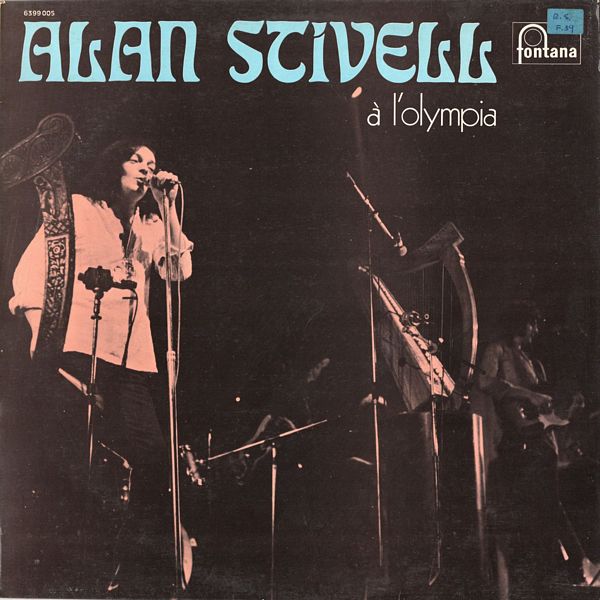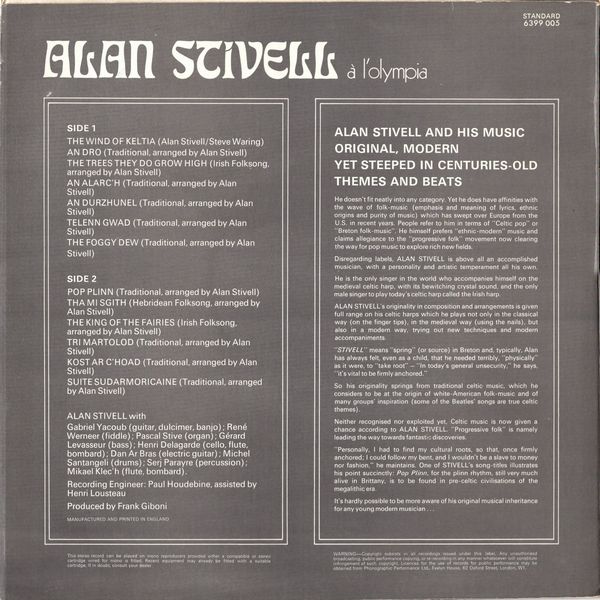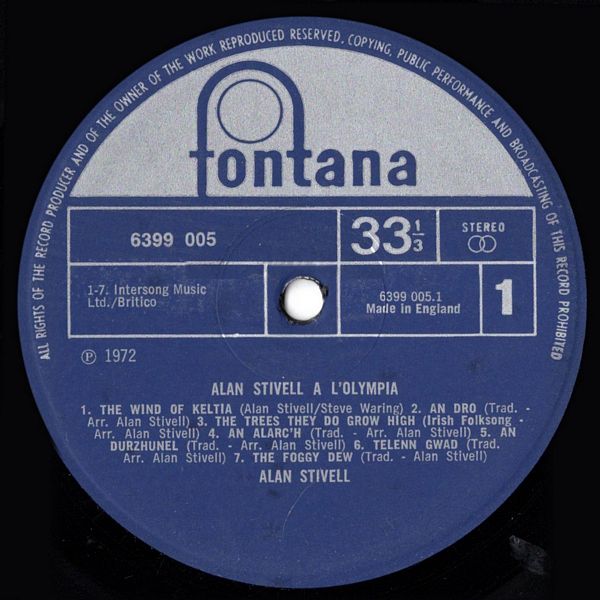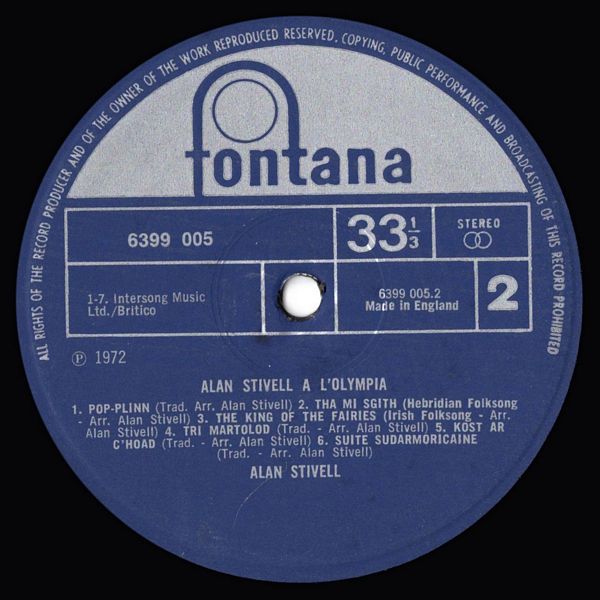
 |


 |
Sleeve Notes
ALAN STIVELL AND HIS MUSIC ORIGINAL, MODERN YET STEEPED IN CENTURIES-OLD THEMES AND BEATS
He doesn't fit neatly into any category. Yet he does have affinities with the wave of folk-music (emphasis and meaning of lyrics, ethnic origins and purity of music) which has swept over Europe from the U.S. in recent years. People refer to him in terms of "Celtic pop" or "Breton folk-musiq". He himself prefers "ethnic-modern" music and claims allegiance to the "progressive folk" movement now clearing the way for pop music to explore rich new fields.
Disregarding labels, ALAN STIVELL is above all an accomplished musician, with a personality and artistic temperament all his own.
He is the only singer in the world who accompanies himself on the medieval Celtic harp, with its bewitching crystal sound, and the only male singer to play today's Celtic harp called the Irish harp.
ALAN STIVELL's originality in composition and arrangements is given full range on his Celtic harps which he plays not only in the classical way (on the finger tips), in the medieval way (using the nails), but also in a modern way, trying out new techniques and modern accompaniments.
"STIVELL" means "spring" (or source) in Breton and, typically, Alan has always felt, even as a child, that he needed terribly, "physically" as it were, to "take root" — "In today's general unsecurity," he says, "it's vital to be firmly anchored."
So his originality springs from traditional Celtic music, which he considers to be at the origin of white-American folk-music and of many groups' inspiration (some of the Beatles' songs are true Celtic themes).
Neither recognised nor exploited yet, Celtic music is now given a chance according to ALAN STIVELL. "Progressive folk" is namely leading the way towards fantastic discoveries.
"Personally, I had to find my cultural roots, so that, once firmly anchored; I could follow my bent, and I wouldn't be a slave to money nor fashion," he maintains. One of STIVELL's song-titles illustrates his point succinctly: Pop Plinn, for the plinn rhythm, still very much alive in Brittany, is to be found in pre-celtic civilisations of the megalithic era.
It's hardly possible to be more aware of his original musical inheritance for any young modern musician …